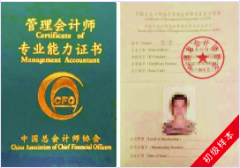大學(xué)英語四六級考試虛擬語氣詳解資料(五)
三.混合條件句----主從句時間不一致情況下的虛擬語氣
有時條件從句中的動作和結(jié)果與主句中的動作,發(fā)生的時間不一致,這時動作的形式應(yīng)根據(jù)它所表示的時間加以調(diào)整。如:
1. 從句表示過去,主句表示將來:
⑴、If they had started the early morning yesterday, they would be here now.
⑵、If we hadn' t made adequate preparations, we shouldn' t dare to do the experiment next week。
2. 從句表示將來,主句表示過去:
⑴、If I were not to make a preparation for my experiment this afternoon, Iwould have gone to see the film with you last night.
3.從句表示過去,主句表示將來:
⑴、If we hadn't made adequate preparations, we shouldn't dare to do theexperiment next week.
4.從句表示將來,主句表示現(xiàn)在:
⑴、If we shouldn't have an exam this afternoon, I would go shopping now.
5.從句表示過去,主句表示現(xiàn)在。
⑴、If they had stared the early morning yesterday, they would be here now.
⑵、If you had followed my advice, you would be able to finish the work now.
如果你當(dāng)時聽了我的話,現(xiàn)在就能完成這份工作了。(從句說明過去,主句說明現(xiàn)在。)
6.從句表示現(xiàn)在,主句表示過去
⑴、If I were you, I would have gone to her birthday party.如果我是你,我就去參加她的生日晚會了。(從句說明現(xiàn)在,主句說明過去。)
7.從句表示過去,主句表示過去和現(xiàn)在
⑴、If you hadn’t lent me some money, I couldn’t have bought the new house and most likely I would be still living in the dangerous house now.
假若你不借錢給我,我不可能買下這幢新房,很可能現(xiàn)在還住在危房里。(從句說明過去,主句說明過去和現(xiàn)在。)
四、含蓄條件句
非真實條件句中的條件從句有時不表出來,只暗含在上下文中,這種句子叫做含蓄條件句。含蓄條件句大體有三種情況;
1. 條件暗含在短語中。如:
(1)、What would I have done without you? 如沒有你,我會怎么辦呢?(條件暗含在分詞短語without you中)
(2) 、It would be easier to do it this way. 這樣做會比較容易。(條件暗含在不定式短語to do it this way中)
(3) 、This same thing, happening in wartime, would lead to a disaster. 同樣的事,如發(fā)生在戰(zhàn)時,就會釀成大禍。(條件暗含在分詞短語happening in wartime中)
(4)、 But for your help we couldn’t have succeeded in the experiment. 如果沒有你的幫助,我們的實驗是不會成功。(暗含條件是but for your help)
(5)、 He must have the strength of a hippopotamus, or he never could have vanquished that great beast. 他一定是力大如河馬,否則他絕不會擊敗那只龐大的野獸。(暗含條件是連詞or)
(6)、 Alone, he would have been terrified. 如是單獨一人,他是會感到害怕的。(暗含條件是alone)
2. 條件暗含在上下文中。如:
(7)、 You might stay her forever. 你可以永遠待在這兒。(可能暗含if you wanted to)
(8) 、We would have succeeded. 我們本來是會成功的。(可能暗含if we had kept trying)
(9) 、Your reputation would be ruined. 你的名譽會敗壞的。(可能暗含if you should accept it)
(10) 、I would appreciate a little of your time. 謝謝你給我一點時間吧。(可能暗含if you were so kind as to give me a little of your time)
3. 在不少情況下,虛擬式已變成習(xí)慣說法,很難找出其暗含的條件。如:
(11) 、You wouldn’t know. 你不會知道。
(12) 、I would like to come. 我愿意來。
(13) 、I wouldn’t have dreamed of it. 這是我做夢也不會想到的。
(14) 、He told the story in such minute detail that he might himself have been an eye-witness. 他將那事講的非常仔細,簡直就象他親眼看見一樣。
五、條件從句中省略if 采用倒裝語序的情況
1、在if引導(dǎo)的表示虛擬的條件狀語從句中,有時可以把含有助動詞、情態(tài)動詞、be或have的虛擬條件句中的連詞if 省去,而將had , should, were 等詞提到主語之前,即用倒裝結(jié)構(gòu)。
例如:
1). 原句:If she were younger, she would do it.
去If:Were she younger, she would do it. (把動詞were移到主語she的前面)
2). 原句:If he had tried it, he could have done it.
去If:Had he tried it, he could have done it.(把had移到主語he的前面)
3).Had he worked harder, he would have got through the exams.
4).Were he to leave today, he would get there by Friday.
5).Were I in your place, I wouldn’t do that.
6).Had I seen the film, I would have discussed it with them last night.
假如我看了那部電影,昨晚我就可以和他們一起討論了。
7).Were I a bird, I could fly freely.
假如我是一只小鳥,我就能自由翱翔。
8).Should it rain next week the farmers would have a good harvest.
要是下周能下雨的話,農(nóng)民們就能有個好收成了。
2、如果虛擬條件句中有were, had或should時,把它們放在if的位置上;但是如果條件句中沒有were, had或should不能用倒裝。例如:
⑴、Should it rain tomorrow, what should we do? 要是明天下雨的話,我們怎么辦呢?
⑵、Were I you, I would have asked him for some advice.要是我是你的話,我就向他請教了。
⑶、Were he to do this work by himself, he would get a lot of money.如果他自己能夠做此工作,他就會得到一些錢。
3、在“開放式條件句”(open conditional clause)和讓步狀語從句中should是被省略了的。在這種情況下,如果if省略,動詞be與主語的位置要倒裝。如:
⑴、If any person be guilty of a crime, the court shall have the right to appeal. (任何人犯罪,法院有權(quán)起訴。)
Be any person guilty of a crime, the court shall have the right to appeal.
⑵、Whether she be right or wrong, she will have my unanswering support. (不管她是對還是錯,我都會支持她的。)
Be she right or wrong, she will have my unanswering support.
⑶、____ ,I will take her as my wife.
[A]Were she rich or poor
[B]Being rich or poor
[C]Be she poor or rich
[D]Whether is she poor or rich
4、注意:有時虛擬條件句并沒來if 從句表示出來,而是用介詞短語(otherwise, or, without, but for)、上下文或其它方式來表示。
⑴、We didn't know his telephone number; otherwise we would have telephoned him.
⑵、Without you help, I wouldn’t have achieved so much.
⑶、But for your help, I would not have succeeded.
六、有時虛擬條件句的從句或主句都可以省略其中一個:
1. I could help you. (只有主句)
2. If I had time. (只有從句)
3. She should have come to the meeting. (只有主句)
4. If he had much more money. (只有從句)
課程推薦
- 中級會計職稱普通班
- 中級會計職稱特色班
- 中級會計職稱精品班
- 中級會計職稱實驗班
| 課程班次 | 課程介紹 | 價格 | 購買 |
|---|---|---|---|
| 普通班 | 班次特色 |
240元/一門 450元/兩門 680元/三門 |
購買 |
- 中級會計職稱機考模擬系統(tǒng)綜合版
- 中級會計職稱機考模擬系統(tǒng)實驗版
| 模擬題庫 | 題庫介紹 | 價格 | 購買 |
|---|---|---|---|
| 實驗版 | 題庫特色 |
240元/一門 480元/兩門 720元/三門 |
購買 |
最新新聞
網(wǎng)站地圖
-
財經(jīng)會計熱門證書
-
初級會計職稱
-
中級會計職稱
-
注冊會計師
-
外貿(mào)會計證
-
會計實務(wù)操作
專業(yè)知識水平考試:
考試內(nèi)容以管理會計師(中級)教材:
《風(fēng)險管理》、
《績效管理》、
《決策分析》、
《責(zé)任會計》為主,此外還包括:
管理會計職業(yè)道德、
《中國總會計師(CFO)能力框架》和
《中國管理會計職業(yè)能力框架》
能力水平考試:
包括簡答題、考試案例指導(dǎo)及問答和管理會計案例撰寫。
專業(yè)知識水平考試:
考試內(nèi)容以管理會計師(中級)教材:
《風(fēng)險管理》、
《績效管理》、
《決策分析》、
《責(zé)任會計》為主,此外還包括:
管理會計職業(yè)道德、
《中國總會計師(CFO)能力框架》和
《中國管理會計職業(yè)能力框架》
能力水平考試:
包括簡答題、考試案例指導(dǎo)及問答和管理會計案例撰寫。

 您現(xiàn)在的位置:
您現(xiàn)在的位置:







